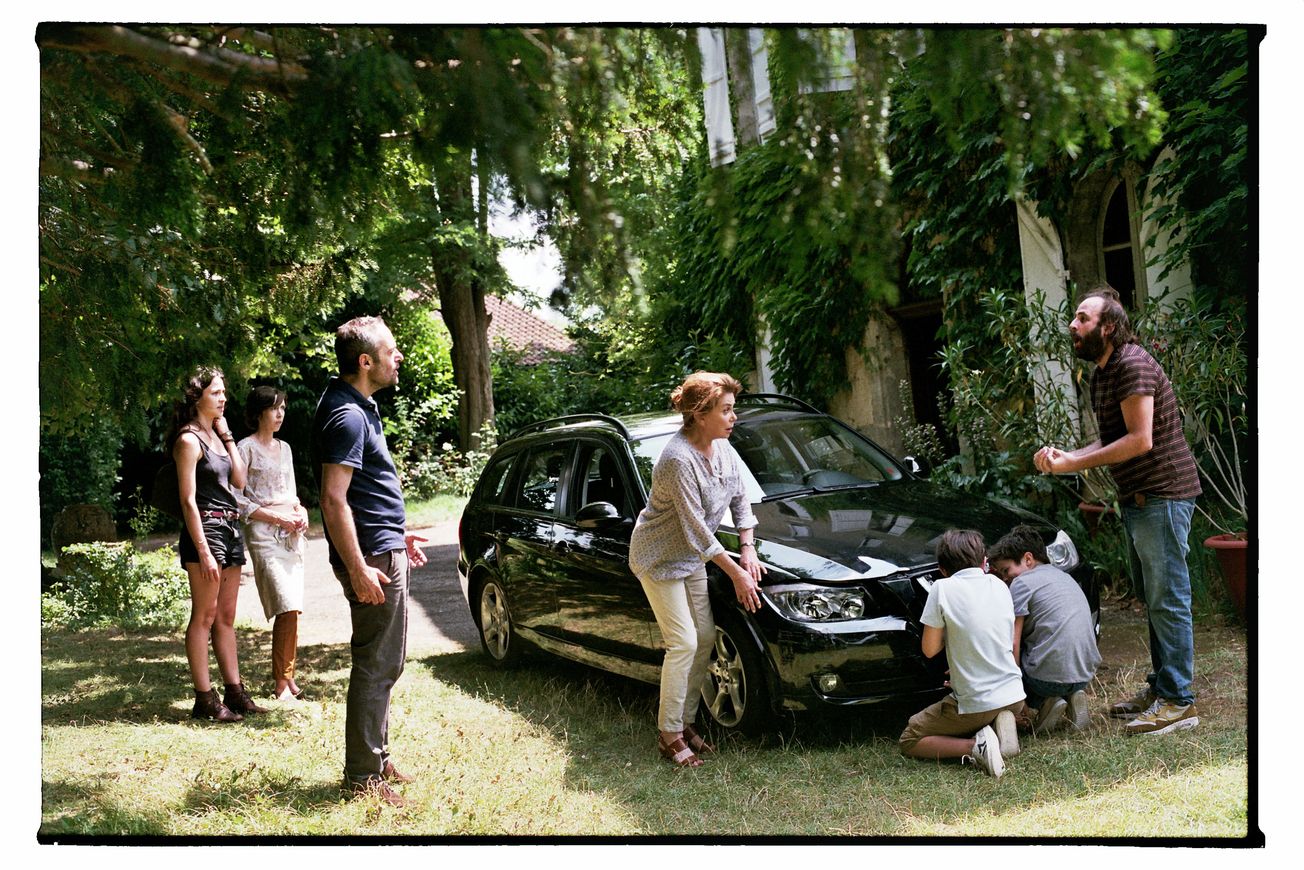By Lara Kelly, Third Year English
As the Watershed Bristol hosts the touring French Film Festival, a story about a dysfunctional family touches on complex issues of mental health and awkward family dynamics.
Watching Happy Birthday (2019) felt like Christmas dinner preparation, with all the laughter and arguments that come with it. The film is written and directed by Cédric Kahn, who also acts as the older brother Vincent. It’s the birthday weekend of Andrea, played by Catherine Deneuve, the matriarch of French cinema and the mother and grandmother at the centre of this film.
When Andrea’s daughter Claire (Emmanuelle Bercot) arrives out of the blue from California, the family is forced to confront its past. Deneuve’s filmmaker son Romain constantly films the weekend, exacerbating the pressure to keep up appearances.
Happy Birthday sensitively portrayed how issues of mental health are often most difficult to deal with in a family
Claire’s re-entry is fraught with melodrama – she is stranded on the motorway in the pouring rain. Her daughter Emma has been living at her grandmother’s house and has grown apart from her mother. Claire makes racist comments when she meets her daughter’s boyfriend Julien, saying to her mother ‘he’s a bit black isn’t he’.
This spiteful comment is exemplary of the deep fear of losing her relationship with her daughter, but it creates an uncomfortable introduction to her character. She is the stereotypical narcissistic family member, demanding that they sell their house so she can start a business.
Why French films still have that je ne sais quoi
We soon discover that she has had two psychotic episodes. The only person who understands that the demand for money is a ‘cry for help’ is her sister-in-law, Marie. Particularly poignant to me was that the only person without a close relationship with Claire is the only person who can offer any real help. She’s also a G.P - reflecting the reality that most families lack expertise when dealing with issues of mental health.
The relationship between Claire and Emma is one of the most moving aspects of Happy Birthday. Even when her mother’s distress reaches a climax, Emma takes a hard-line by saying she’ll move out and live with her boyfriend if Claire dares to move in. The difficulty navigating issues of mental health in a family are clear: while it might be the best thing for Claire to move back in with a family who loves her, for her daughter there are strong emotional implications.
While female characters respond with more immediate compassion to Claire’s distress, nobody in the film is beyond reproach. Andrea is loving and well-meaning, but rather ineffectual at resolving conflict.
As an audience we identify most with those on the fringes of the family, caught up in a drama that isn’t even our own
On the other hand, the older brother Vincent’s decisive pragmatism doesn’t resolve anything either. Director Cédric Kahn suggests that the sister’s suffering is a problem that cannot be tidily settled but involves a process of learning how best to support her. There are no heroes and villains here, contrary to what many family dramas often imply.
The film privileges certain points of view however – we are never privy to Julien’s thoughts on the family, something that was frustrating as he is so wrapped up in the action. As an audience we identify most with those on the fringes of the family, caught up in a drama that isn’t even our own, and much more could have been made of this point of view.
French Film and Filmmaker Favourites
Overall, Happy Birthday sensitively portrayed how issues of mental health are often most difficult to deal with in a family: it’s a place of love and support, but it’s also comprised of the people it is hardest to see in pain. There were complex performances and each character’s individual response was deftly crafted. Times of celebration are also times of heightened emotions and the pressure to enjoy oneself – things that can inevitably bring about harsh conflict.
Featured image - Kris Dewitte / Les Films du Worso
Did Happy Birthday's family politics affect you? Let us know!







